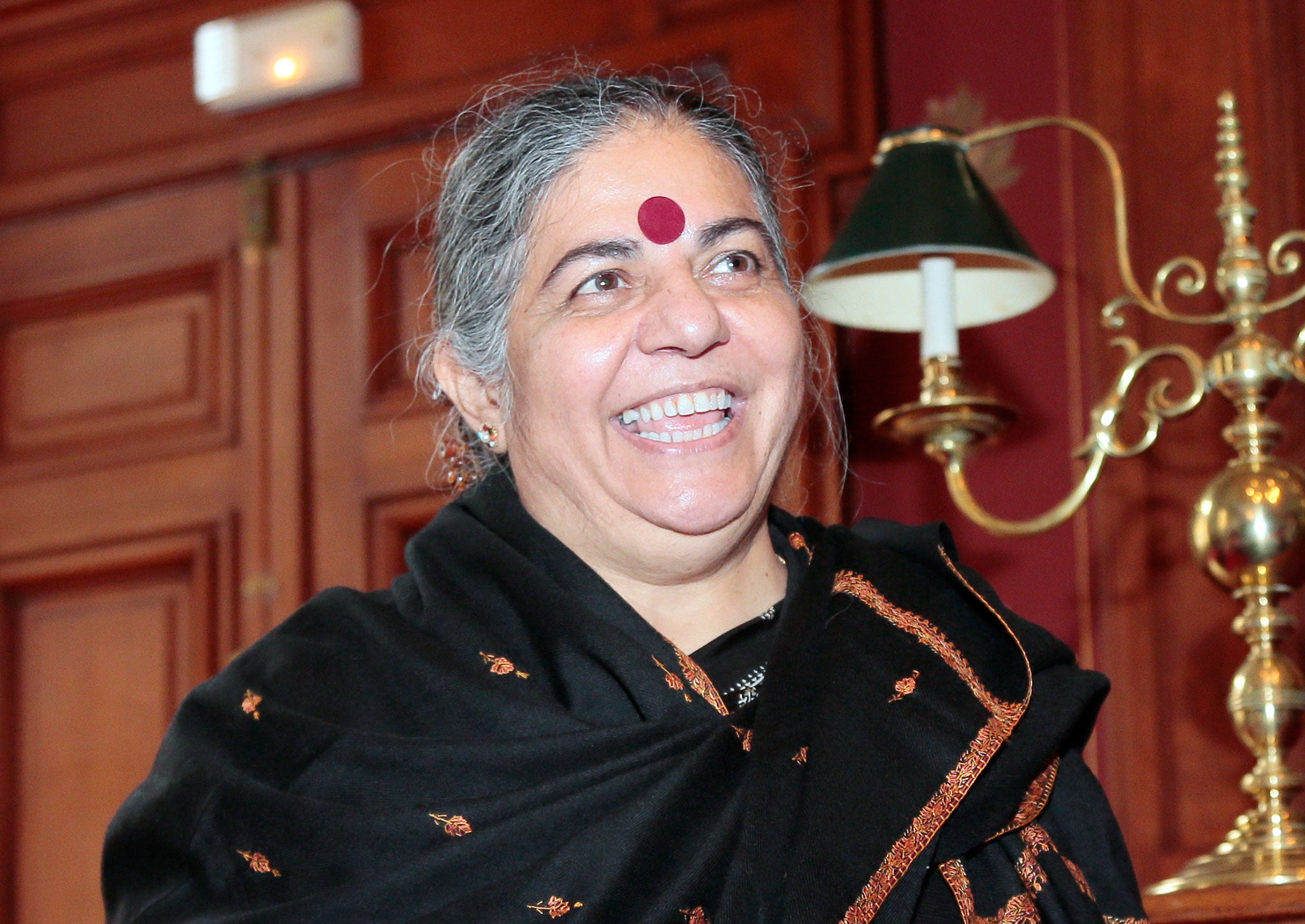The Independent's journalism is supported by our readers. When you purchase through links on our site, we may earn commission.
Meet Vandana Shiva: The deserving heir to Mahatma Gandhi's legacy
What Gandhi was to the British Empire, Dr Shiva is to Monsanto


There have been several Indian pretenders to the Mahatma Gandhi legacy in the 66 years since his assassination, but only one of them truly deserves the title.
She looks nothing like the bony old wizard, but Vandana Shiva, a plump, Brahmin matron of 61, has a lot of Gandhi’s charisma and is approaching his level of global fame. And in one key respect the similarities are acute: against enormous odds, by the power of her oratory, leadership and tireless campaigning, she has for years put a large spoke in the wheel of some of the most powerful organisations in the world.
What Gandhi was to the British Empire, Dr Shiva is to Monsanto, the multinational agribusiness corporation, and its allies, including the World Bank, the World Trade Organisation, the US government and Bill and Melinda Gates. She has put all of these extremely powerful actors on the back foot for a very long time, which is not where they are accustomed to being. As Michael Specter puts it in a hefty profile of her in the current issue of the New Yorker magazine: “Owing almost wholly to the efforts of Shiva and other activists, India has not approved a single genetically modified food crop for human consumption.”
The only question that really matters regarding Dr Shiva and her campaign is whether or not that is a good thing. The debate over genetically modified organisms (GMOs) in the West tends to revolve around two issues: whether foods engineered in the laboratory are bad for us and whether they might dangerously contaminate the environment.
On the first question, Mr Specter claims that “there has not been a single documented case of any person becoming ill” from eating GM food. Contamination, on the other hand, is a danger that requires careful management.
But from the Indian perspective the most glaring risk is quite different. India’s farmers are among the world’s poorest and most of the thousands who have committed suicide have done so because they got hopelessly into debt due to the costs of keeping up with the fertiliser-based Green Revolution that transformed Indian agriculture in the 1960s.
Among the costs peasant farmers are spared are seeds – they use the ones naturally produced in the plant’s life cycle. But the so-called “terminator seeds” sold by Monsanto have no progeny, by design. Every year the farmer must buy new seeds. In this way he is strapped to the vast locomotive of globalisation. Dr Shiva’s phrase, “seed slavery”, means nothing to the large-scale farmers of the West for whom such crops were developed. But in India it is a very real fear.
Dr Shiva has brilliantly articulated this fear. But in the process she has got carried away with her own rhetoric, wowing her Western audiences with visions of innocent, bio-diverse village India falling prey to evil Western capital. In the process she has made herself look ridiculous, claiming that the expense of GM cotton – which unlike GM food crops is widely grown in India – has caused hundreds of thousands of farmer suicides and that Monsanto is guilty of “genocide”.
Like Gandhi, Dr Shiva is in thrall to a romantic vision of village India which bears little relation to the real thing. By stripping down to the dhoti and spinning cotton, Gandhi hoped to banish the modern world and lead India back into a state of innocence which never existed outside his imagination.
By demonising technologies that, if adopted with sensitivity and common sense could potentially improve the lives of millions, Dr Shiva is doing her impoverished compatriots no favours. This debate demands less heat and more light.

Join our commenting forum
Join thought-provoking conversations, follow other Independent readers and see their replies